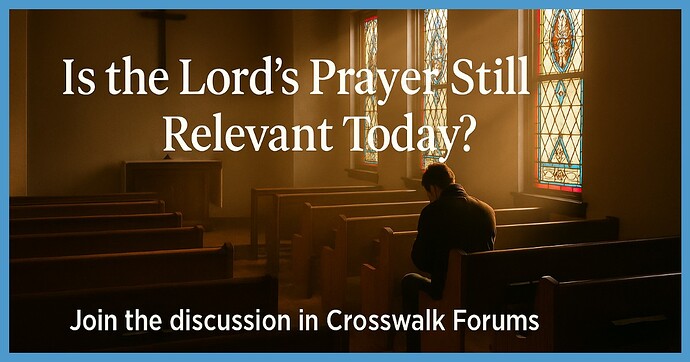@Fritzpw_Admin et. al.
Friends and Disciples of Jesus;
The passage in question is found within what is popularly called “The Sermon on The Mount”. In this teaching Jesus is sharing with a mass of His Jewish disciples the radical effect His presence will have on the faith and practice of Judaism. Many understandings of the faith, and many common practices had, over many years, wandered off the path of righteousness, and had lost their original meaning and intent. The presence and ministry of Jesus would provide the way to regain that right path. The teaching in this “sermon” focuses on what the true path looks like, and how a disciple must adopt new understandings that necessarily stand in stark contrast to common thoughts and ways of doing things. The Kingdom of God was in their midst, at the door, and this teaching reorients the hearts of those hoping to enter into it.
The teaching follows the radical statement that "unless a disciples righteousness exceeds the righteousness of the scribes and Pharisees, they will not enter the kingdom of heaven". Jesus goes on to explain the interior alterations that must take place for a disciple to live in The Kingdom of God. Jesus reveals God’s full knowledge of every person’s interior motivation of their hearts. In the prelude to the passage in question, Jesus offers poignant examples, each beginning with “you have heard it said”, and resolves with “but I say to you” statements. “You have heard that it was said to those of old, 'You shall not murder…”. Murder is a crime that happens in the heart, and is expressed outwardly as conflict with the brethren. He goes on to explain that the same heart commits kingdom crimes against a spouse, in the taking of oaths and making promises, in reactions to being wronged, in relations with enemies, and with each he then he teaches the sincere and righteous ways of The Kingdom they are all hoping to enter.
Rarely is this passage, popularly referred to as “The Lord’s Prayer” understood within this context. Some may actually be surprised to realize it is nestled within the local context of teaching Kingdom “sincerity” with “anonymity”, demonstrated in three common expressions of Jewish faith – charity, prayer, and fasting. The improper practice of each of these three aspects of Kingdom life is exposed with a three-pronged teaching method.
First, the ostentation is exposed with the injunction “Do Not…”.
Secondly, insincerity is exposed for pursuing an immediate and temporal reward with the phrase “they have their reward”.
And then thirdly Jesus shows them the kingdom way by saying “But I say to you…”.
His teaching is not a directive to abstain from these activities, but to reject ostentatious hypocrisy while practicing secret sincerity. This distinction is ironically undetected in many modern recitations of “The Lord’s Prayer” which is offered in the wake of the phrase “…do not use vain repetitions as the heathen do. For they think that they will be heard for their many words.”.
Matthew 6:1-18 Summary
Charity
(1) Take heed that you do not do your charitable deeds before men, to be seen by them.
(2) Assuredly, I say to you, they have their reward.
(3) Therefore, when you do a charitable deed, …
Prayer
(1a) And when you pray, you shall not be like the hypocrites….
(2) Assuredly, I say to you, they have their reward.
(3a) But you, when you pray, go into your room….
(1b) And when you pray, do not use vain repetitions as the heathen do.
(3b) In this manner, therefore, pray: Our Father in heaven, Hallowed be Your name….
Fasting
(1) Moreover, when you fast, do not be like the hypocrites, with a sad countenance….
(2) Assuredly, I say to you, they have their reward.
(3) But you, when you fast, anoint your head and wash your face, …
Jesus offers His model for sincere prayer with the words “in this manner”,( Gk: houtō), meaning “this type of prayer", which I take to mean “sort of like this, but in your own sincere words”. By the context, I believe a sincere disciple in The Kingdom of God would pray in this manner, but not recite these words, simply because it is taught within the paradigm of “sincerity” and “intimacy”. The entire prayer is short, simple, and flooded with sincerity; the contents are intimate in yielding, dependence, confession, and contrition. These are the aspects of sincere prayer that Jesus seems to be emphasizing as essential, and he is not teaching the practice of vain recitation of His words.
If a person is expecting to receive the designed nutrition of a good stew, he must not pick about the bowl to isolate the peas and carrots. The stew is designed to be consumed by the spoonful – the melding of all the flavors, the nuances of the various textures, with symbiotic nutrition contained in each bite. As with all bible Study, if a disciple is expecting to receive nutritional understanding, scripture is to be consumed by the spoonful, each word masticated within the flavorful and nutritious context.
When Matthew 6:9-13 are consumed within the stew of Matthew 5, 6, &7, a disciple will come away from the table full, satisfied, and very differently than someone who snatches a pea out of the pot, declares themselves to have eaten dinner, and walks away.
KP

